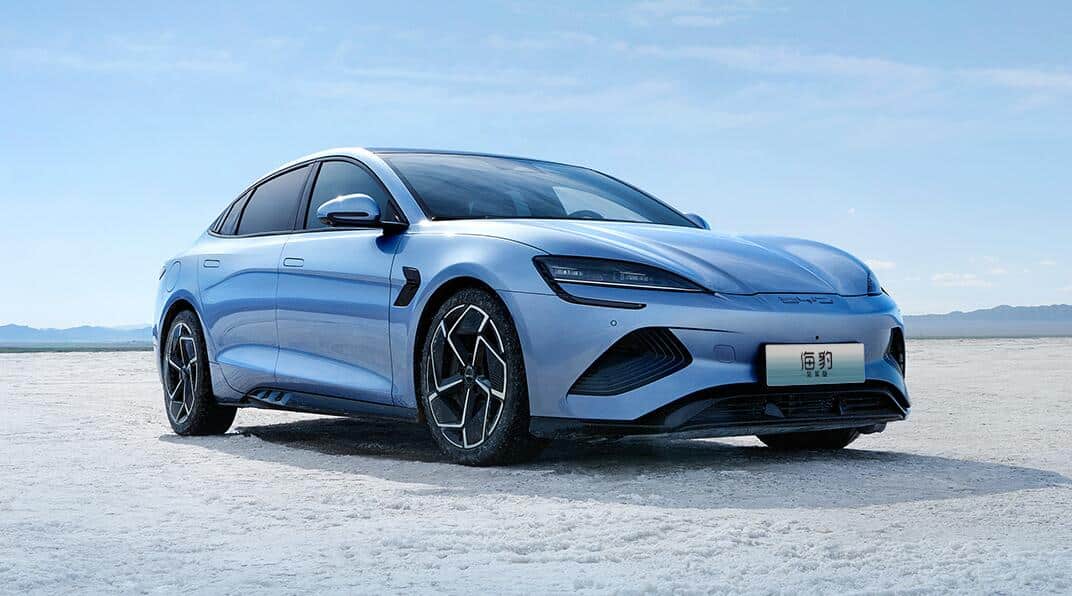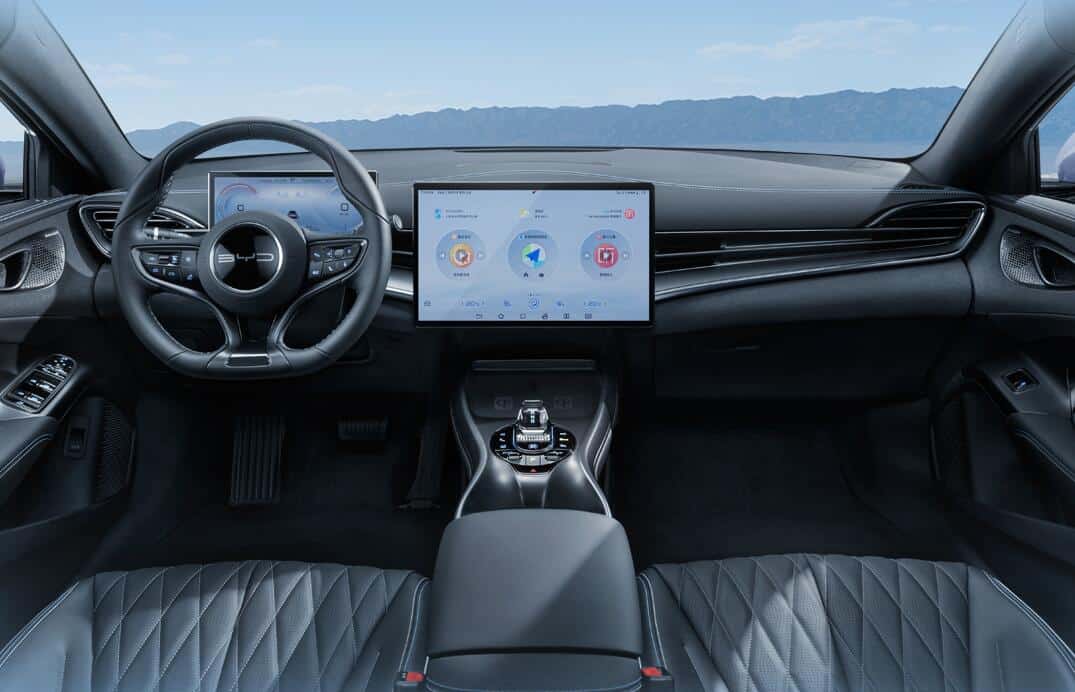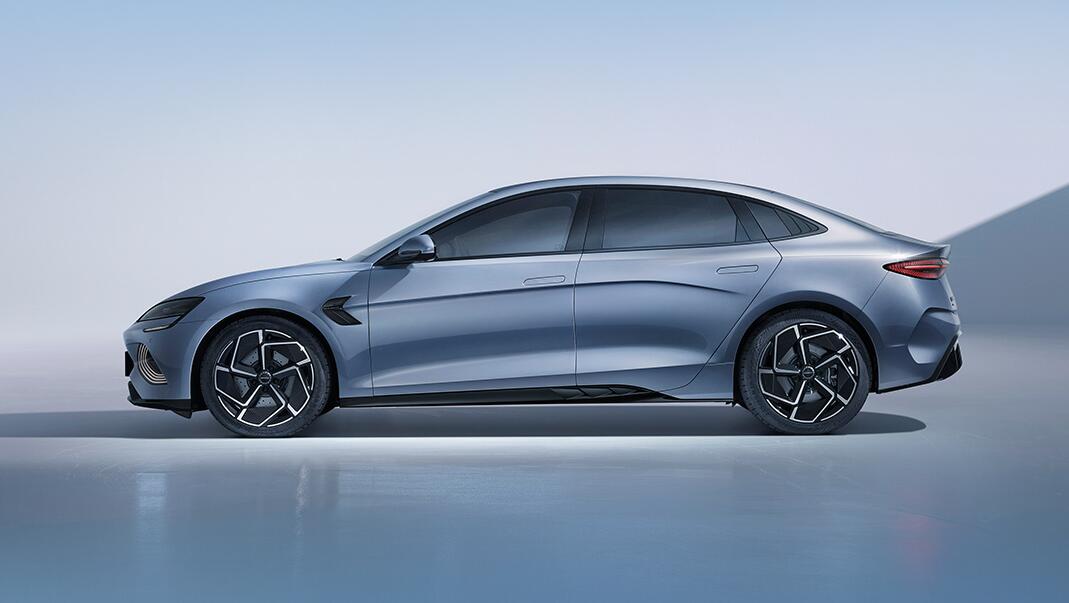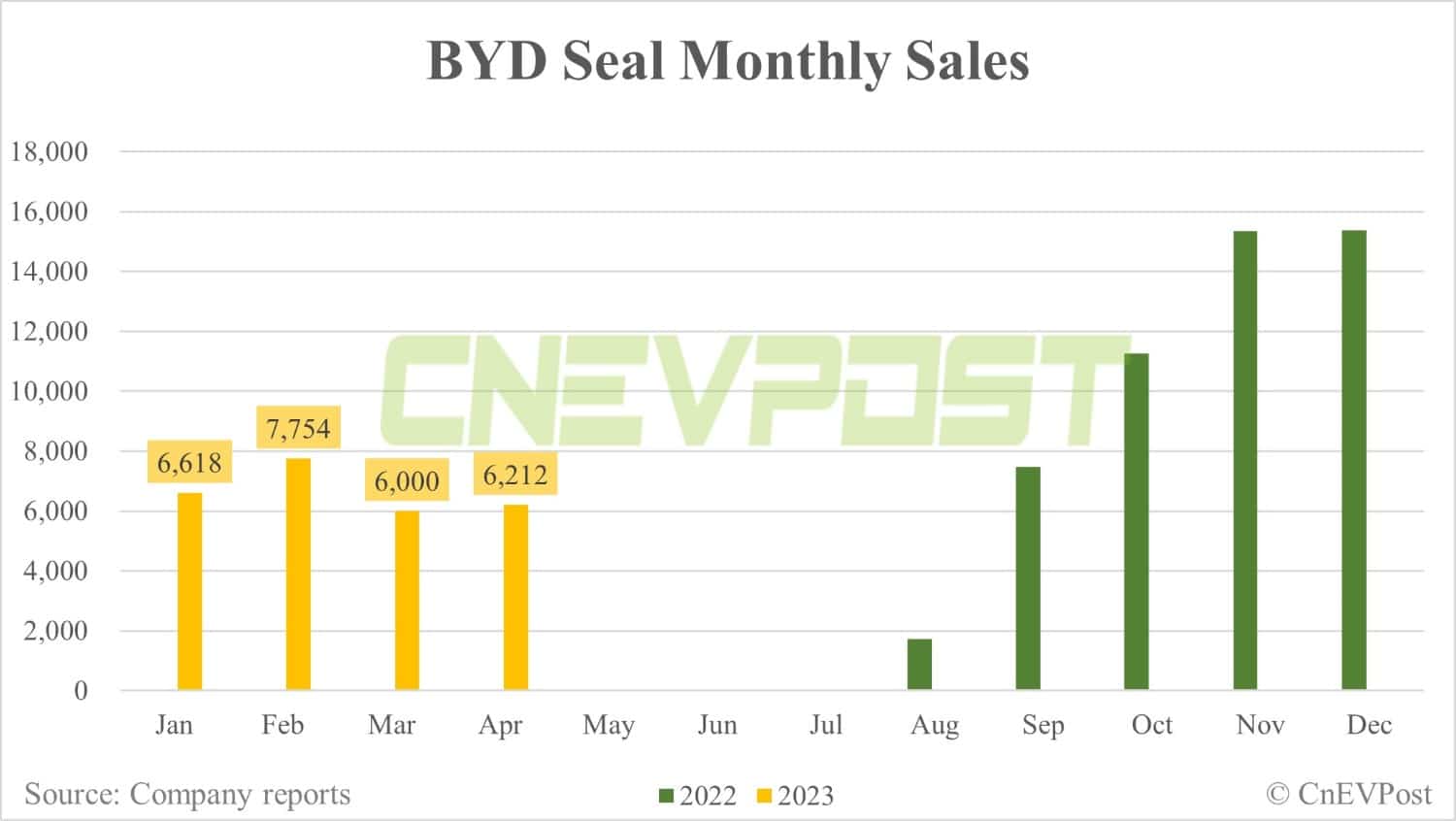The new BYD Seal starts at RMB 189,800, down RMB 23,000 from its predecessor's RMB 212,800.
(Image credit: BYD)
When price cuts are tricky, making the price lower by releasing a facelift becomes a better option to stimulate sales.
BYD (OTCMKTS: BYDDY) today officially made an improved version of its all-electric Seal sedan available for a starting price of 23,000 yuan ($3,320) less than the previous model on sale.
The new energy vehicle (NEV) giant calls the new Seal the "Champion Edition," in line with what it did earlier this year when it launched improved versions of several other models.
The new BYD Seal comes in five variants with starting prices of RMB 189,800, 202,800, 222,800, 239,800 and 279,800 respectively, marking the first time the model has been priced below RMB 200,000.
By comparison, the BYD Seal was previously available in four versions, with starting prices of RMB 212,800, 225,800, 262,800 and 289,800 respectively.
Previously the model was offered in three rear-wheel drive versions and one four-wheel drive version, with the former offering two with a CLTC range of 550 km and one with a range of 700 km, and the latter with a range of 650 km.
The latest BYD Seal has an additional, less expensive, rear-wheel-drive version with a range of 700 km. Its performance is lower, however, with a peak motor power of 170 kW and peak torque of 330 Nm.
The previously available rear-wheel drive version with a range of 700 km has been renamed the 700 km Performance Edition and is priced at RMB 239,800, down from RMB 262,800. It has a peak motor power of 230 kW and peak torque of 360 Nm.
The core specifications of the other versions remain unchanged from the previous version, but new features have been added, including support for the iPhone NFC digital car key.
The BYD Seal measures 4,800 mm in length, 1,875 mm in width and 1,460 mm in height, and has a wheelbase of 2,920.
It can accelerate from 0 to 100 km/h in 7.5 seconds for the entry version and 3.8 seconds for the 4WD version.
Both versions of the 550 km model are equipped with a battery pack with a capacity of 61.4 kWh, while all other versions have a capacity of 82.5 kWh.
The BYD Seal was originally launched in China on July 29, 2022 and is seen as one of the strongest rivals to the Tesla Model 3 in China.
Deliveries of the model began in August last year, with more than 15,000 units delivered in both November and December, data monitored by CnEVPost show.
But this year, with the overall weak performance of China's NEV market following the withdrawal of some stimulus policies and a price war, sales of the Seal have slumped, selling only about 6,000 units in each of the past two months.
To boost sales, BYD began offering discounts for the Seal as well as the Song in early March and extended them through the end of April after that offer expired at the end of March.
BYD did not lower the official prices of the model, as such a move could easily lead to a bigger price war and protests from owners.
In fact, BYD isn't the only one to get prices down by releasing a facelift.
Hozon Auto's electric vehicle brand Neta Auto yesterday launched two new variants of its flagship sedan Neta S, lowering the model's starting price by RMB 13,000 to under RMB 200,000.
The two new variants -- the all-electric Neta S 520 Lite and Neta S 520 -- start at RMB 189,800 and RMB 199,800 respectively.
The previously lowest-priced battery electric vehicle (BEV) version of the Neta S was the version with a CLTC range of 715 km, starting at RMB 248,800.
The Neta S is also available in an extended-range version with a starting price of RMB 202,800.
($1 = RMB 6.9273)




